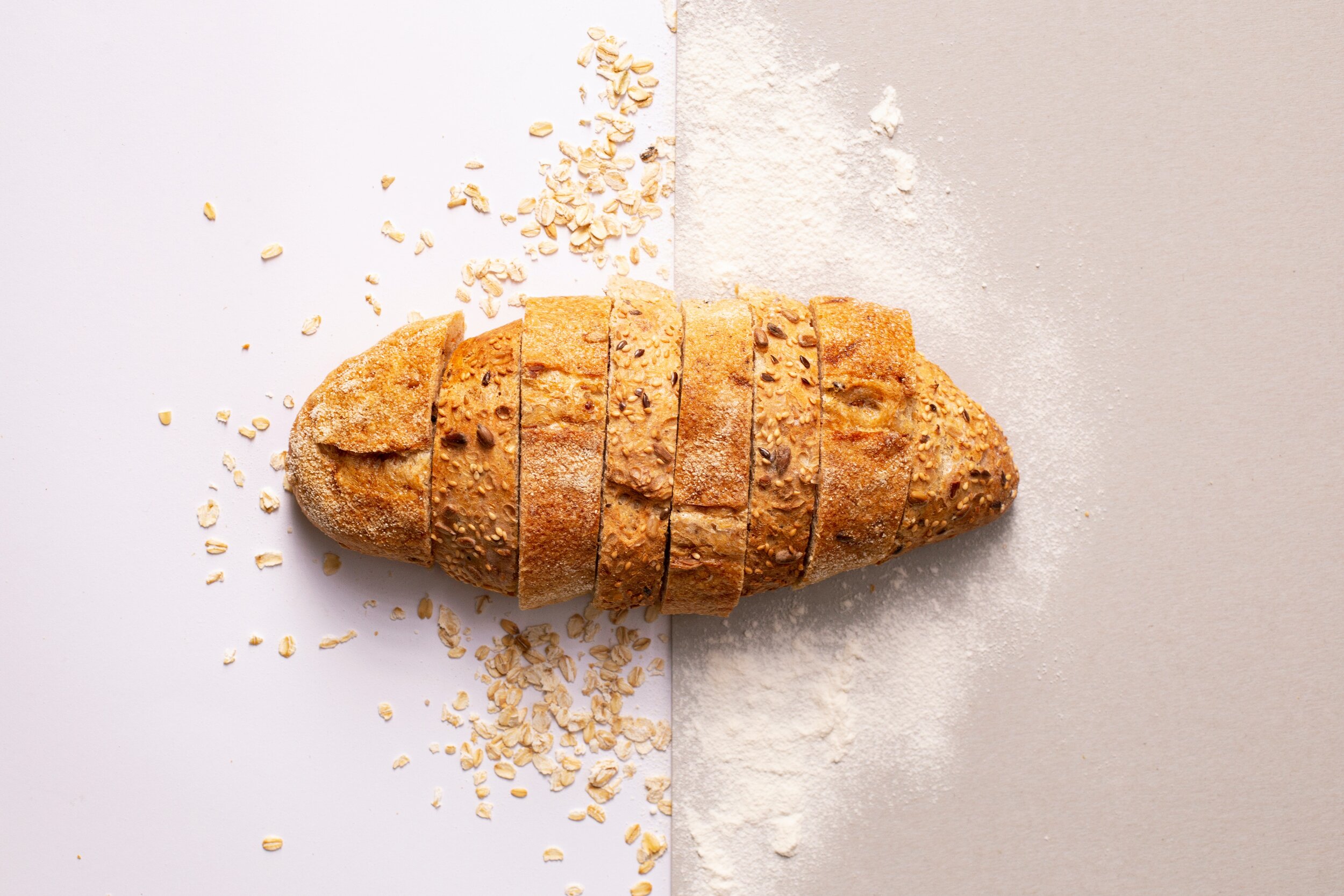Gluten intolerance vs. Coeliac Disease - What is the difference?
Gluten is increasingly being blamed for every gastrointestinal issue nowadays. The rise in gluten intolerance (or gluten sensitivity) has led to large increases in gluten-free products in our supermarkets.
However, why all of a sudden is everyone being diagnosed with gluten intolerance and is gluten really to blame?
What is gluten?
Believe it or not, gluten is actually a protein that is found in many of our common wheat products. Gluten helps maintain the shape and texture in a variety of food products, particularly bread, crackers, pasta, cereals and baked goods, to name a few.
Ever wondered why the texture of gluten free bread is generally more dense and doesn’t always have that ‘fluffy’ feel - it is the gluten!
difference between Coeliac Disease and Gluten Intolerance?
Coeliac Disease, unlike gluten intolerance, is an autoimmune disease where the cells, also known as villi, of your small intestine become damaged by the protein gluten. Over time and with continued consumption of gluten, these villi become more and more damaged leading to reduced absorption of nutrients and therefore malabsorption. Gluten is harmful to those with Coeliac disease and therefore once diagnosed, one MUST cut out all forms of gluten to stop the damage. Even the tiniest amount can be harmful and lead to conditions such as infertility or frequent miscarriages, osteoporosis, failure to thrive in infants, delayed puberty, headaches, anaemia and fatigue.
If you are experiencing ongoing digestive symptoms such as bloating, flatulence, chronic diarrhoea, pale coloured or foul-smelling stools, it is important to seek help and get tested for Coeliac Disease. In order to obtain accurate results you need to be eating gluten for 4-6 weeks prior, so before cutting anything out, please see your GP.
Gluten intolerance, on the other hand, can leave you with unpleasant symptoms, however, is not dangerous or damaging to your body. This is often referred to as non-coeliac gluten sensitivity (NCGS) and researchers are still working hard to find the exact ‘cause’ of these symptoms.
Symptoms for both can be similar where you may experience:
Abdominal bloating and excessive flatulence
Chronic diarrhoea or constipation
Nausea and vomiting
In addition to unpleasant digestive side effects, a common symptom of NCGS is brain fog or mental fatigue.
Could it be FODMAPS?
FODMAPS are a large group of carbohydrates that are poorly digested in many people, and lead to many of the same symptoms as NCGS. In particular, fructans (a group of FODMAP carbohydrates) containing wheat, barley and rye may, in fact, have a role to play in your symptoms. The issue is that it is not as simple as cutting out gluten because fructans are also present in other foods such as onions, garlic, brussel sprouts and cabbage, to name a few.
What should you do if you are experiencing ongoing digestive symptoms?
It is extremely important to seek assistance from your healthcare team before self-diagnosing and cutting out whole food groups. Going to a health practitioner will allow you to rule out anything more serious and get sorted out properly.
If you would like to follow a specific ‘diet’ whatever that might look like, it is important to work with a Dietitian to ensure you are meeting your nutrient recommendations and are not unnecessarily cutting out food groups. Book in with one of our Dietitians today.







